Articles
Jane Goodall on Chimpanzees, Language and the Soul
Disneynature’s Chimpanzee, the latest family-friendly nature documentary from Earth directors Alastair Fothergill and Mark Linfield, depicts a surprising twist in the early life of a young chimpanzee nicknamed “Oscar” living in the Taï Forest in the Ivory Coast. Dr. Jane Goodall, the world’s foremost expert in chimpanzees, has seen the film, and discussed it with me via phone a couple of days ago.
The 2012 Academy Award Nominees
I like lists better than awards, so I look forward to the Academy Award nominations more than the Oscars ceremony itself. The process of whittling down countless contenders to a handful of nominees is more interesting than the process of picking one nominee as the winner — and this year is no exception.
2011: The year in reviews
2011 was a good year for film, and particularly for depictions of faith in film — but not in the Hollywood mainstream on either count.
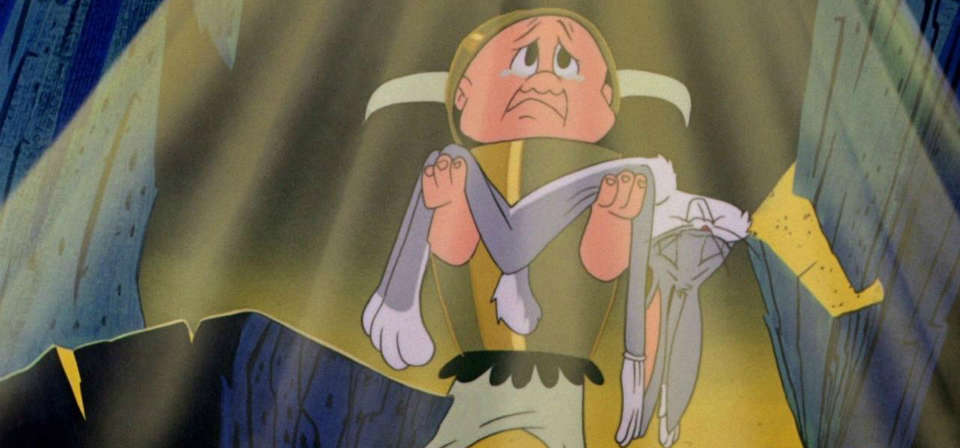
Looney Tunes: An Appreciation
I don’t remember the first time I encountered Charlie Chaplin or the Marx Brothers, or the first time I saw Casablanca, but whenever it was, I came to them with some inkling of what lay in store thanks to Looney Tunes.
A house divided: A domestic family-film metaphor
Like Dorothy’s house, uprooted in fairy-tale response to her running away, physical domiciles in one family film after another are displaced, torn asunder, and undergo fantastic, traumatic crises and transformations in visionary mirroring of the upheaval in the characters’ lives.
Machine Gun Preacher: Sam Childers Talks About His Biopic, His Life and His Work in Sudan
In 1998, a former gang biker named Sam Childers joined a church mission trip to the Sudan to help repair huts damaged in the Second Sudanese Civil War. Most of the people on that trip finished their charitable labors and left Africa behind, but Sam didn’t — not completely.
Hollywood Adjustment?
The Adjustment Bureau and Hereafter are among a remarkable number of recent and upcoming Hollywood films in some way invoking themes of spirituality, religion or belief. 2010 was particularly rife with such Hollywood religiosity, quantitatively if not necessarily qualitatively.
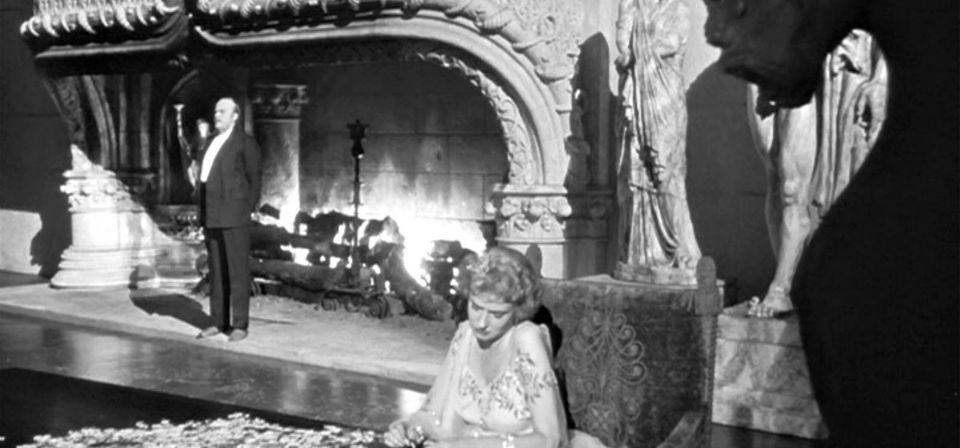
Citizen Kane, André Bazin and the “Holy Moment”
Everyone knows that Citizen Kane — celebrating its 70th anniversary with this week’s 3-disc Blu-ray debut — enjoys a bulletproof reputation as The Greatest Movie Ever Made … What isn’t so generally known is that the film’s prominent place in so many film classes — and for that matter, the fact that there are film classes in the first place — has a lot to do with the work of a revolutionary Catholic film critic and theorist, André Bazin, whose critical theories were shaped by the same tradition of Christian personalist philosophy that informed the writings of Pope John Paul II.
September 11 and Hollywood: How Movies Can Help Make Our Past Real — Or Unreal
“It was just like a movie.” A cliché, yes, but as is often the case, that phrase became a cliché for a reason. The frequency with which those words were repeated in the weeks and months after September 11, 2001 was a striking testament to the role movies have come to play in how we process and interpret reality.
Superheroes of Summer 2011: What Our Heroes Tell Us About Ourselves
What do today’s superhero movies tell us about ourselves? For one thing, we’re more skeptical these days about heroes and heroism. In contrast to the stoic confidence of the typical Western hero — or even of Christopher Reeves’ Superman, who as late as 1978 could unabashedly say, “I’m here to fight for truth, justice and the American way” — today’s heroes have feet of clay, and have to grow into their heroic roles.
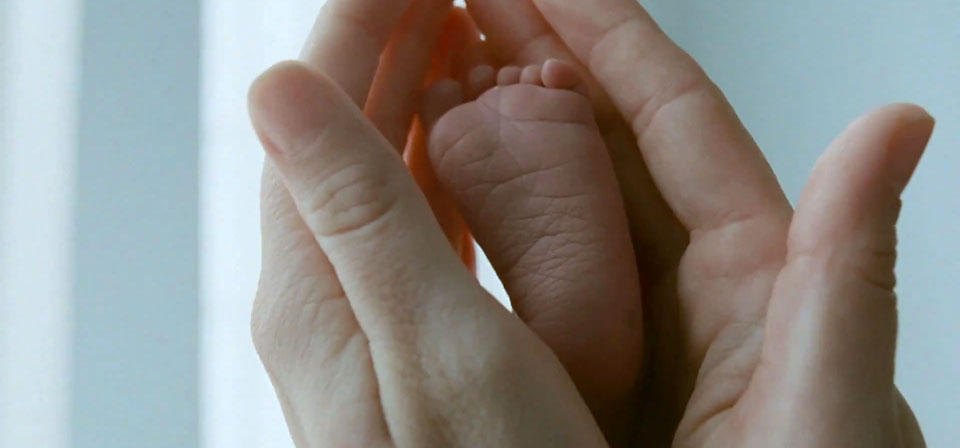
The Tree of Life: God and Man Cross-examined
Here is a film that not only asks, with unusual insistence, why God allows suffering, but contemplates God’s own answer to that question in the Book of Job, amplified by the sweeping vistas of the natural world available to modern science, the Hubble telescope and Hollywood special effects: God did all this; who are we to think we can judge or question him? It also asks why a stern, bullying father hurts his children. Is God like that father?
“Opus Dei does not tell people what to think”
Roland Joffé, director of The Mission and There Be Dragons, calls himself an agnostic, but he seems to be a remarkably God-haunted one.
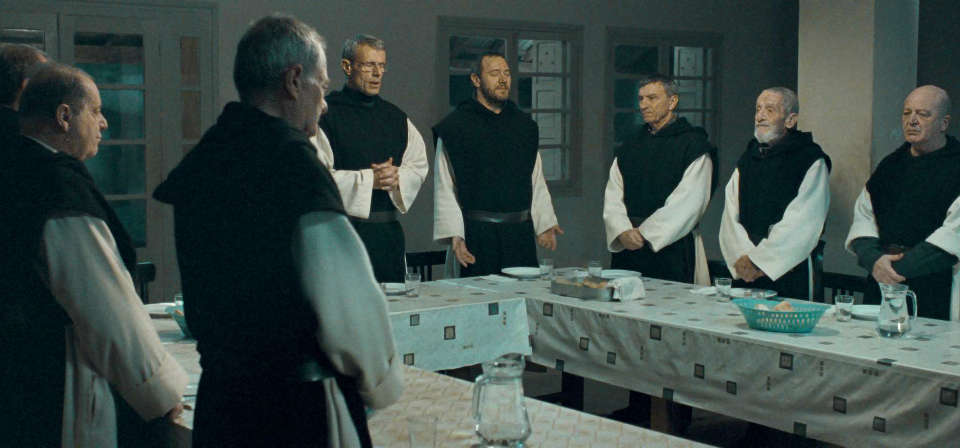
How Catholic is Of Gods and Men?
Has any dramatic feature film ever more powerfully communicated the beauty and attractiveness of lived Christian faith, and of the Christian faith itself, than Xavier Beauvois’s Of Gods and Men?
Academy Crowns The King’s Speech
The royal historical drama The King’s Speech, starring Colin Firth as England’s Prince Albert, later King George VI, was the biggest winner at the 83rd Academy Awards, winning four of its 12 nominations in an evening with few surprises and a poorly staged ceremony whose primary virtue was its comparative shortness.
2010: The year in reviews
Was 2010 “The Worst Movie Year Ever,” as Joe Queenan argued at WSJ.com a while back? Or at least, bracketing art-house and world cinema fare, was it Hollywood’s worst year ever? For most of the year, it sure looked plausible.
Treading the Dawn: Bringing Dawn Treader From Book to Film
Douglas Gresham, Walden Media’s Micheal Flaherty and C. S. Lewis scholar Devin Brown discuss the book and the film.
Fantasia and Fantasia 2000: Revisiting the Sistine Chapel of Disney Animation
(Newly available on Blu-ray/DVD) Rather than a static motion picture, Fantasia was originally conceived as a repertoire, a selection of presentations that over time could be augmented by new pieces while old ones were retired, like an orchestra rotating its concert lineup … Ten years ago, amid the wreckage at the end of the 1990s Disney Renaissance, the Disney studio marked Fantasia’s 60th anniversary with Fantasia 2000, a film intended to honor in a way the original repertory conception of Fantasia.
Harry Potter’s Empire Strikes Back? Don’t Make Me Laugh
12 reasons why Deathly Hallows: Part 1 is no Empire Strikes Back … or even The Two Towers.
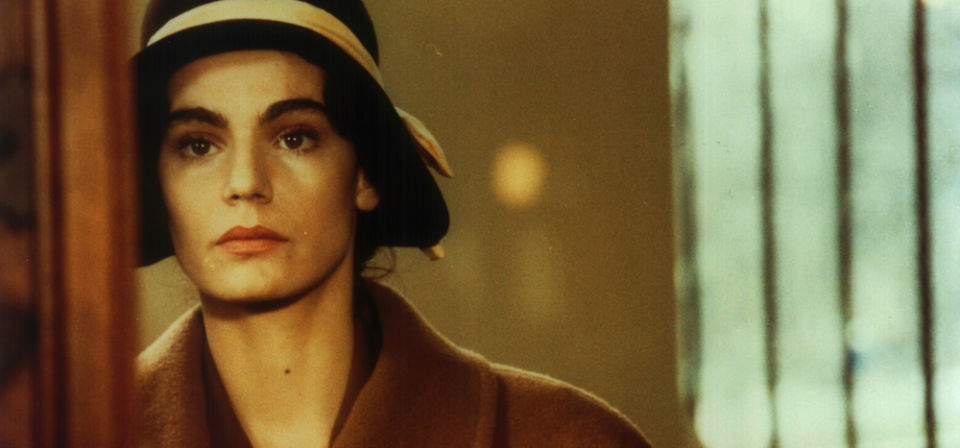
The Seventh Chamber: Edith Stein, The Interior Castle and Auschwitz
The Seventh Chamber shows that for Edith it is only by knowing God that we know ourselves; only through Jesus that we know God; and only through the cross that we can know Jesus.
Catholic Producer Discovers Amish Grace
Debuting today on DVD, the TV movie Amish Grace broke multiple network records when it premiered this spring as the most-watched and highest-rated original movie in Lifetime Movie Network history. Inspired by the nonfiction book of the same title about the aftermath of the 2006 Amish school shooting in Lancaster, Pa., the film was produced by the Larry Thompson Organization, founded by Larry A. Thompson, an executive producer on the film.
Recent
- Benoit Blanc goes to church: Mysteries and faith in Wake Up Dead Man
- Are there too many Jesus movies?
- Antidote to the digital revolution: Carlo Acutis: Roadmap to Reality
- “Not I, But God”: Interview with Carlo Acutis: Roadmap to Reality director Tim Moriarty
- Gunn’s Superman is silly and sincere, and that’s good. It could be smarter.
Home Video
Copyright © 2000– Steven D. Greydanus. All rights reserved.